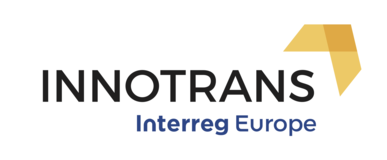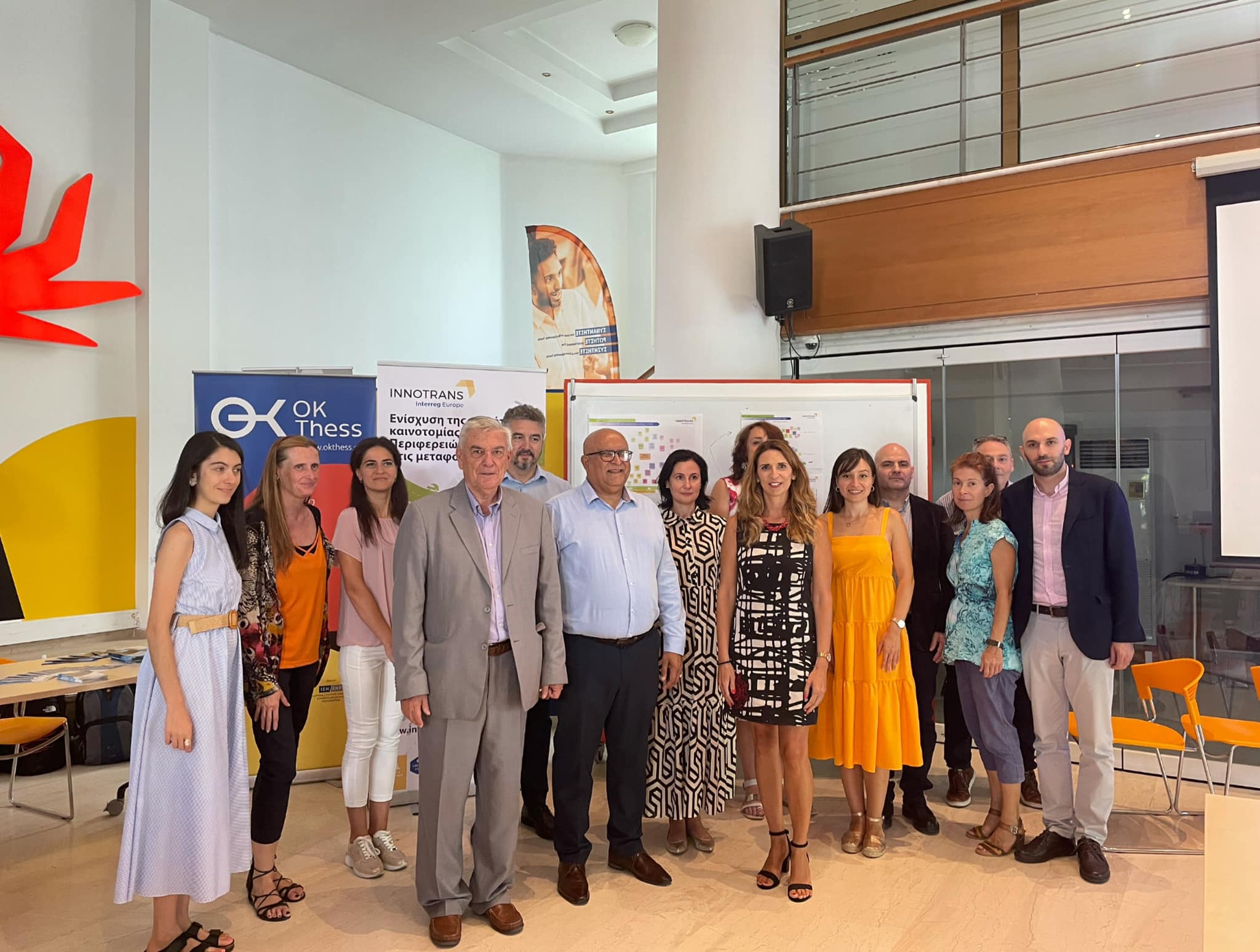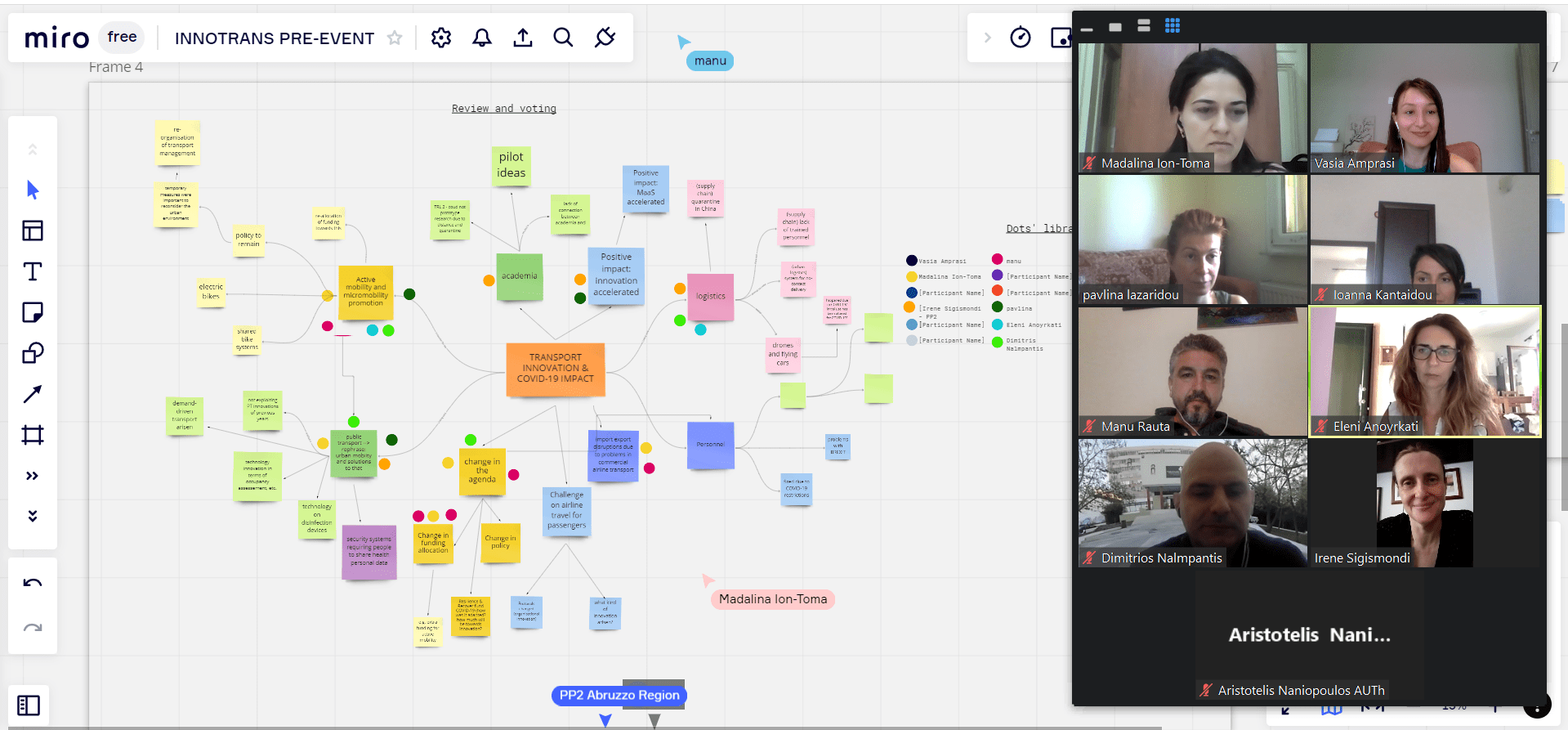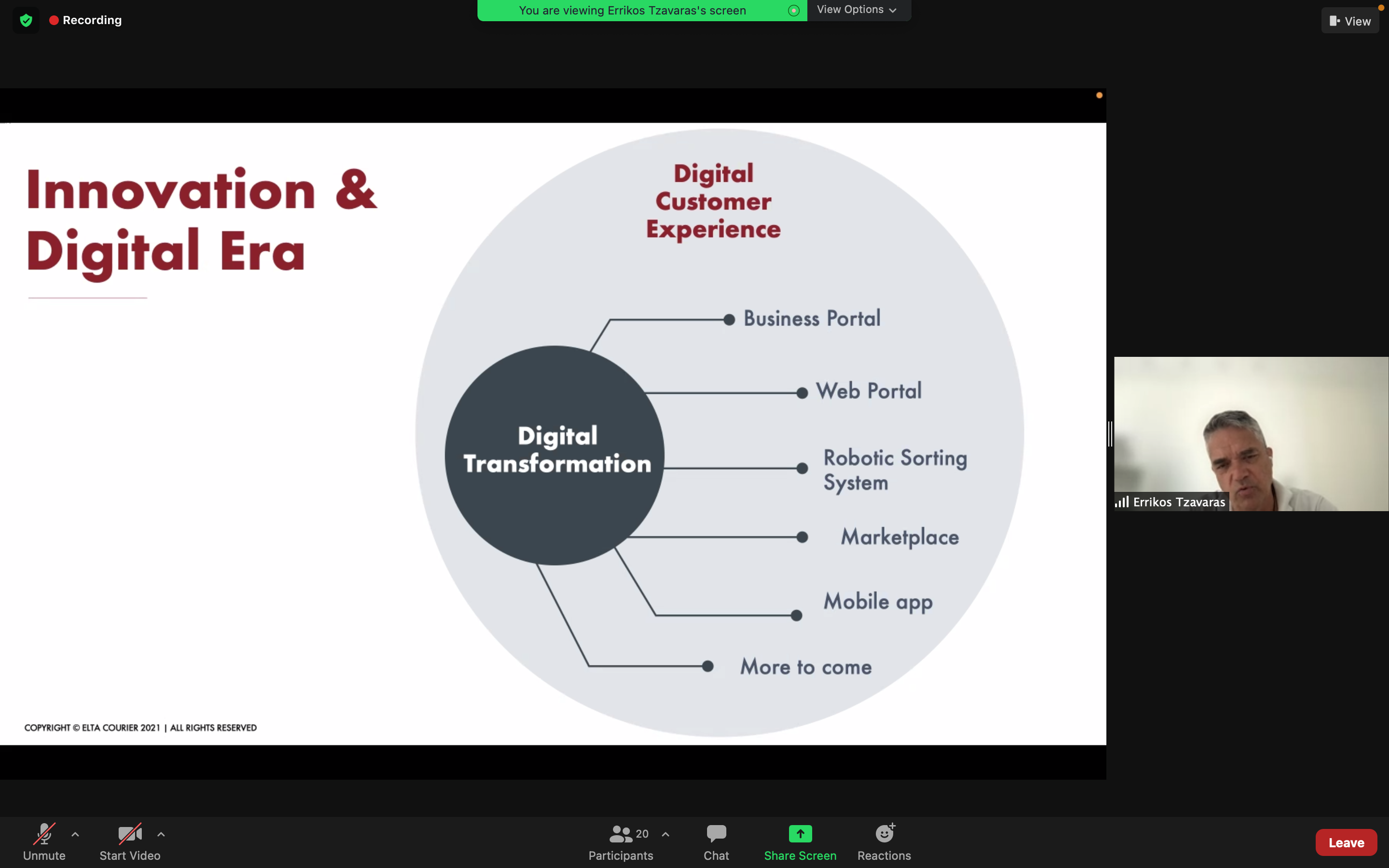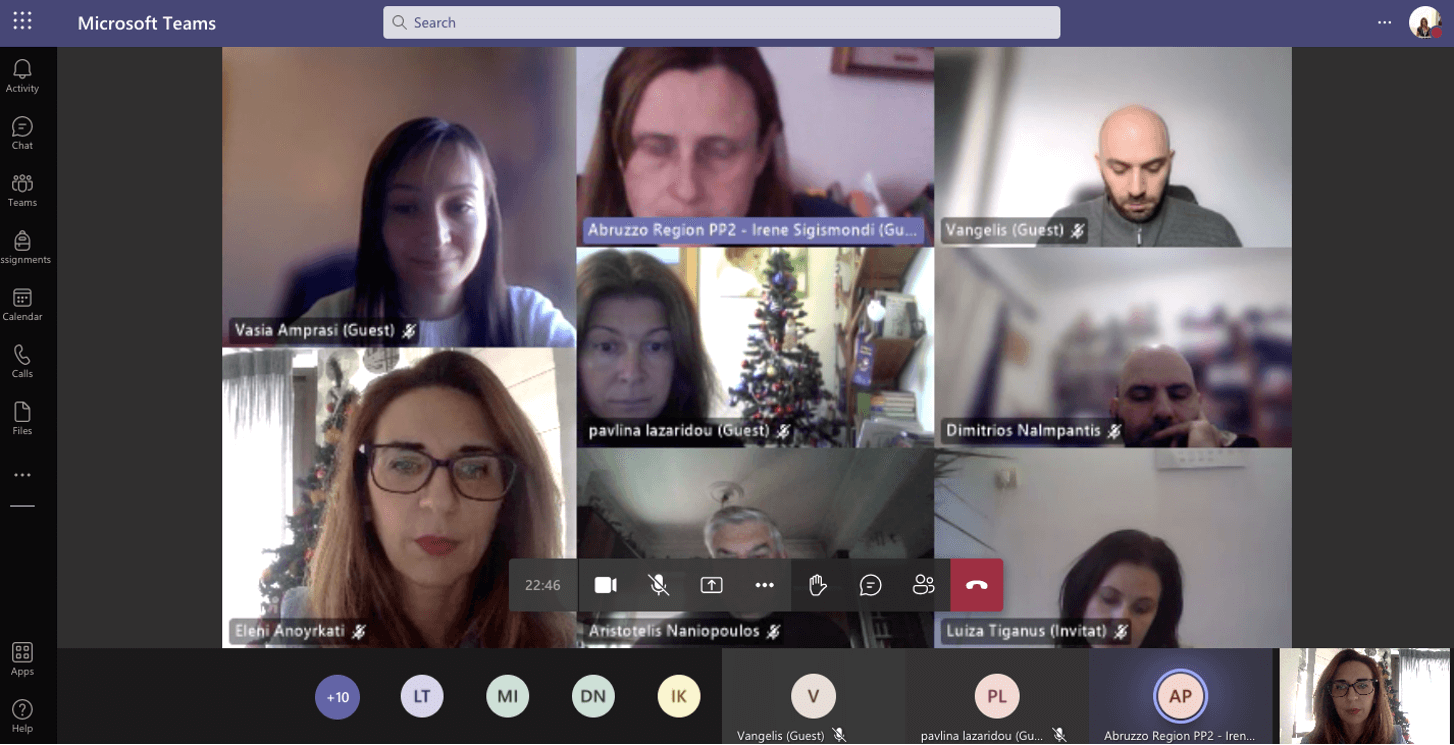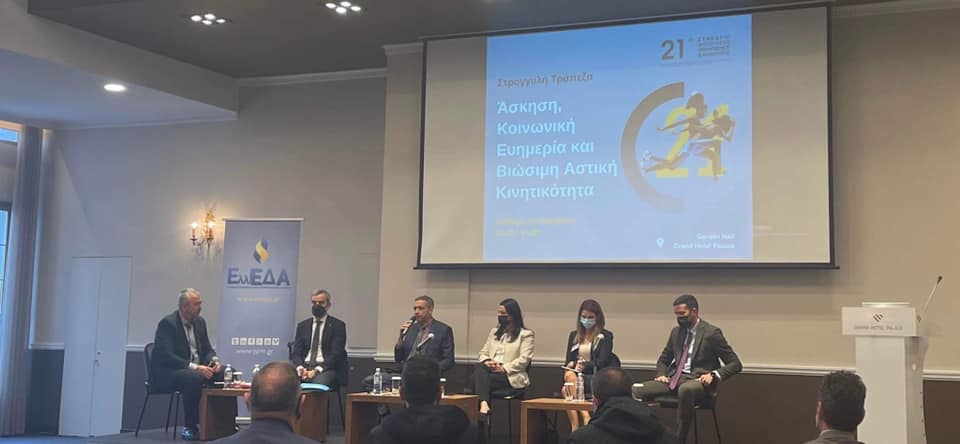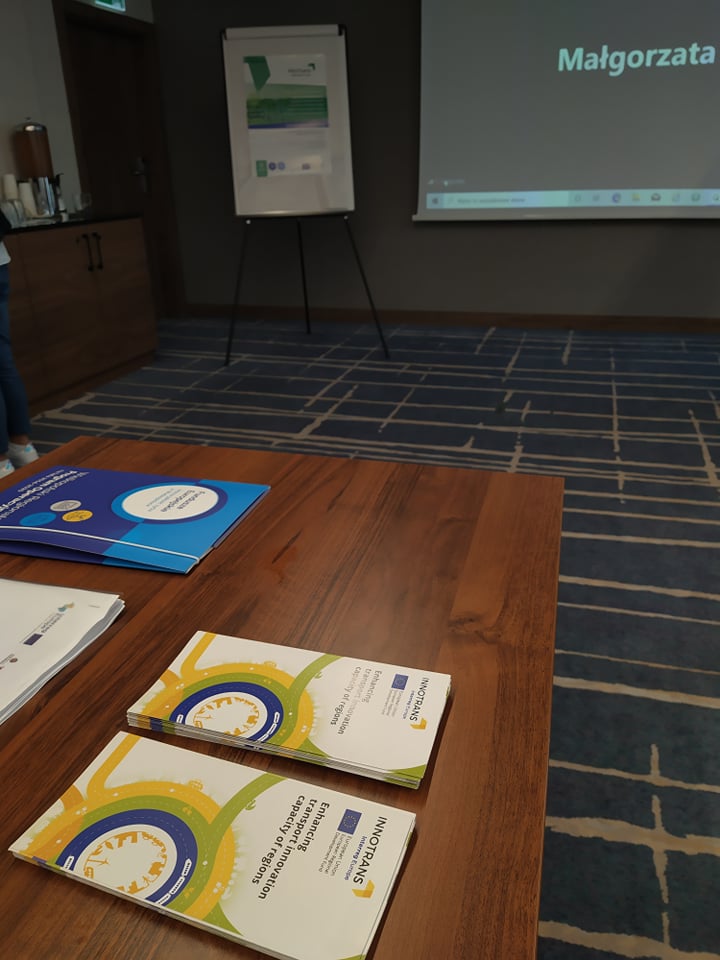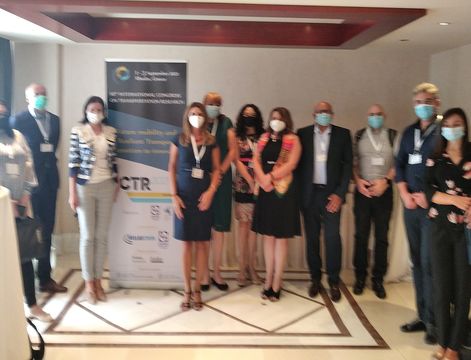The final interregional event of the additional activities of the INNOTRANS project due to COVID-19, will be realized on Monday 29th of August 2022 at 10.30 am local time, at the premises of OK!Thess in Thessaloniki, GR, hosted by the project partner AUTh.
Under the title "Enhancing transport innovation capacity in the era of COVID-19: key findings and lessons learned", good practices on transport innovation will be presented, such as, among others, the development of unmanned aerial vehicles (UAVs, drones) by AUTH and the 1st worldwide urban airport for flying vehicles in Coventry, UK. In parallel, an exhibition in which SMEs and start-ups will be able to demonstrate and promote their innovative transport-related products/services/projects will take place at the venue.
With the participation of representatives of stakeholders from all partner territories, experiences will be exchanged as well as constructive discussions will take place. The findings of the preparatory interregional workshop, which was held virtually on 7th of July 2022, will comprise the starting point for the dialogues.
Registration form required: forms.gle/HdmgX2iFG4eZ2Re3A
Agenda
10:15-10:30 Arrival/Registration/Welcome coffee
10:30-10:40 General welcome/ Opening address
Em.Prof. Naniopoulos, AUTh
Dr. Dimitrios Nalmpantis, AUTh
Dr Eleni Anoyrkati, Project Coordinator, CUE Ltd
Transport innovation in the Region of Central Macedonia: pre- and post-COVID-19 (tbc)
Paris Billias, Vice-Governor of Infrastructure and Networks of RCM
10:40-10:50 Presentation of the INNOTRANS project and its additional activities
Vasia Amprasi, AUTh
10:50-11:10 Keynote: A case study of the development of an Unmanned Aerial Vehicle (UAV) prototype in Thessaloniki
Prof. Kyriakos Yakinthos, Dean of the Faculty of Engineering AUTh
11:10-12:15 COVID-19 responses on transport innovation
• Findings from West Midlands (UK): Urban airport for flying cars
Sunil Budhdeo, Coventry City Council
• Findings from Romania (RO)
South-East Regional Development Region of Romania (SERDA)
• Findings from Abruzzo (IT)
Abruzzo Region
• Findings from Greece (GR)
Aristotle University of Thessaloniki (AUTh)
12:15-12:30 Coffee break + open exhibition for innovative transport-related local SMEs and start-ups
12:30-13:10 Challenges and ideas on ways to overcome the crisis era (COVID-19, war & energy crisis, climate change) while boosting transport innovation
• Round table discussion with executive policymaker representatives per region
Participants:
Dr. Ayfantopoulou, Research Director and Deputy Director of the Hellenic Institute of Transport
Sunil Budhdeo, Transport Innovation Manager, Coventry City Council
Emanuel Rauta, Innovation expert
Abruzzo Region
13:10-13:30 Questions & Answers, feedback
Open discussion Moderated by AUTh
13:30-14:30 Lunch + open exhibition for innovative transport-related local SMEs and start-ups
14:30-15:00 Networking at the open exhibition for innovative transport-related local SMEs and start-ups
(OPTIONAL)
